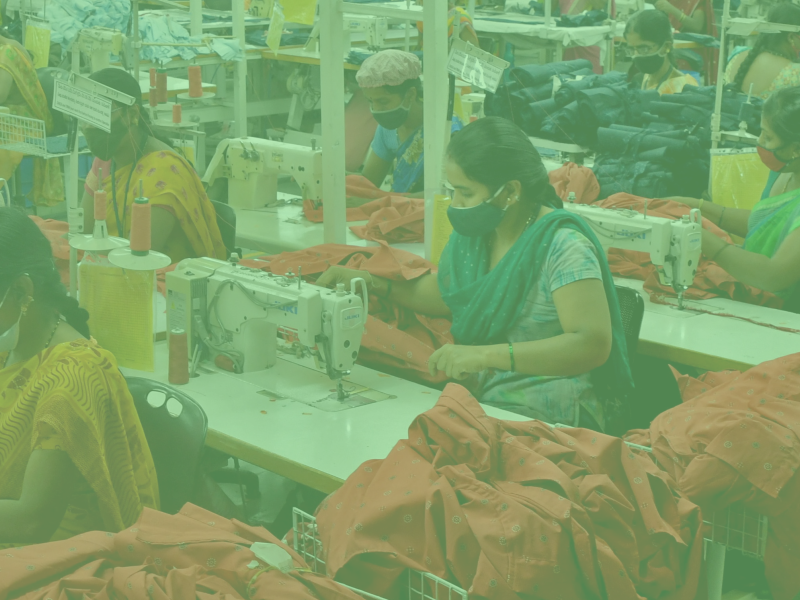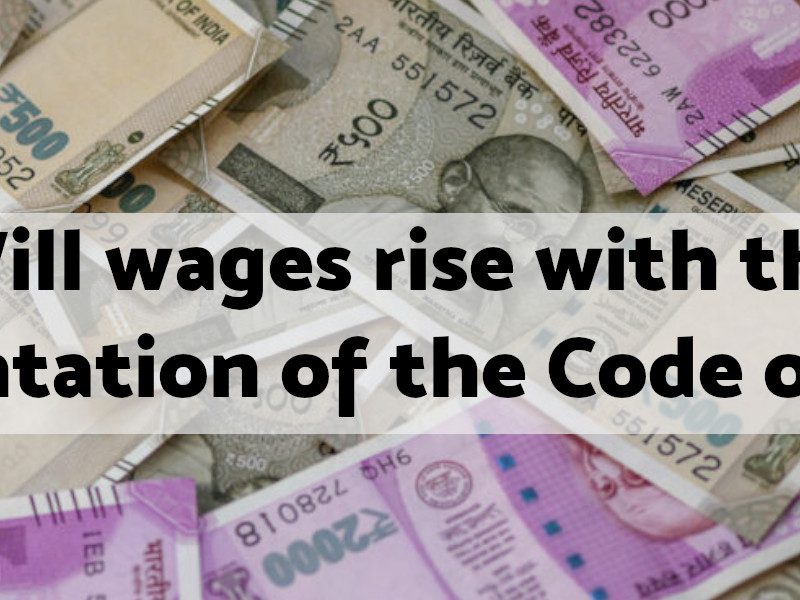We, the people who became adults and who were born in this millennium, are told everyday of our lives that there are two kinds of people in the world: there are dreamers, and there are risk takers and the difference between the two is that a dreamer only dreams and stops dreaming when the going gets tough while the risk takers keep on pushing for their dream even when no one else believes in them. It is not enough to be a dreamer, you have to be willing to lose everything to make it big in this world. We are told Bill Gates, Steve Jobs, Mark Zuckerberg, Nandan Nilekani, Narayan Murthy, Shah Rukh Khan and Narendra Modi were all risk takers and that is how they became who they are today.
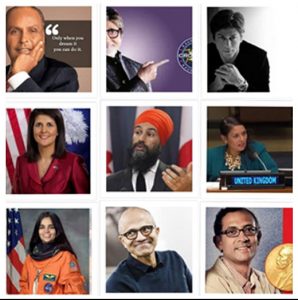 We have grown up watching Shah Rukh Khan going to London and making it big in Kabhi Khushi Kabhi Gham even when he started from scratch. He is no different from someone like Satya Nadella, the CEO of Microsoft. He was born in Hyderabad. He became an engineer like many in his generation and went to the US to pursue an MBA. He joined the R&D division of Microsoft in 1992 and then steadily climbed the ladder within the company to finally become its CEO in 2014. He is also not much different from Abhijit Vinayak Banerjee who went to school and college in Kolkata, then went to JNU and Harvard University, USA. In 2017, he accepted US citizenship and in 2019 he was awarded the prestigious Nobel prize for Economics. The story is the same for Kalpana Chawla who was born and educated in a small town in India but moved to the US in 1982. In 1991 she acquired US citizenship and joined the NASA Astronaut Corps. In 2003, Chawla was one of the seven crew members who died in the Space Shuttle Columbia disaster. She is considered the first ‘Indian’ woman to have been to space. The list is almost endless. We are proud of them all. We consider them all to be Indians even if they are not. We make them role models for our children – we push our children to be like them. The world appears to be one filled with possibilities. These are reel and real life success stories that create our world of dreams and aspirations. We all believe that this is possible. We all believe this is for all.
We have grown up watching Shah Rukh Khan going to London and making it big in Kabhi Khushi Kabhi Gham even when he started from scratch. He is no different from someone like Satya Nadella, the CEO of Microsoft. He was born in Hyderabad. He became an engineer like many in his generation and went to the US to pursue an MBA. He joined the R&D division of Microsoft in 1992 and then steadily climbed the ladder within the company to finally become its CEO in 2014. He is also not much different from Abhijit Vinayak Banerjee who went to school and college in Kolkata, then went to JNU and Harvard University, USA. In 2017, he accepted US citizenship and in 2019 he was awarded the prestigious Nobel prize for Economics. The story is the same for Kalpana Chawla who was born and educated in a small town in India but moved to the US in 1982. In 1991 she acquired US citizenship and joined the NASA Astronaut Corps. In 2003, Chawla was one of the seven crew members who died in the Space Shuttle Columbia disaster. She is considered the first ‘Indian’ woman to have been to space. The list is almost endless. We are proud of them all. We consider them all to be Indians even if they are not. We make them role models for our children – we push our children to be like them. The world appears to be one filled with possibilities. These are reel and real life success stories that create our world of dreams and aspirations. We all believe that this is possible. We all believe this is for all.
Capitalism is rooted in the individual and the choices they make as individuals in their self- interest. Pursuing self-interest is upheld as rational behaviour. This is used to isolate individuals, break and destroy all notions of collective identity, and thereby create competition between individuals pushing them into a selfish and brutal rat race. This race to reach the top begins from the moment a child is born for some families. But for most others the aspiration is just to survive. But whatever the race maybe for, every individual is in the race alone driven by self-interest.
“The world doesn’t belong to the faint hearted, it belongs to the brave”
Every year there are young adults who set out from home in pursuit of this big dream. The stories of Dhirubhai Ambani, Shah Rukh Khan and ace opener Rohit Sharma coming to Mumbai with no money in their pocket and others inspire these children. Stories of ordinary people going to cities from rural India, to larger cities from smaller ones, and becoming successful inspire people around them. Migration begins here. Unequal distribution of opportunities drives migration. It drives migration within the country and beyond. The largest internal migration is seen from the poorest districts of the country and the largest immigration is seen to the most advanced states of the country. The reason behind both is a quest for better opportunity. For a tea plantation worker from Assam, migrating to Kerala to work as a hotel employee is a quantum leap in her condition of life, while for a plantation worker from Kerala the leap occurs when she is able to train as a nurse and move to the Gulf and eventually to a hospital in UK. This is also no different for someone like Kalpana Chawla who could not have gone to space if she had not made the choice on citizenship when she joined the NASA. The story is the same for Gurbax Singh Malhi, the first immigrant turban-wearing Sikh, to be elected to the House of Commons of Canada in 1993. He was born in Moga, Punjab in 1949 to a farming family. He immigrated to Canada in 1975 with his wife and changed the composition of the cabinet of Canada today. In the general election held this month, Canada elected 18 members of parliament of Indian origin. In the outgoing cabinet there were four Sikh members – the defence minister Harjit Sajjan; infrastructure minister Amarjeet Sohi; innovation, science and economic development minister Navdeep Bains and tourism minister Bardish Chagger. In the current election, Jagmeet Singh of the New Democratic Party has turned out to be the kingmaker. Conservative MP and the Home Secretary of UK, Priti Patel, is also a child of an immigrant family that moved from Gujarat to Uganda (Africa) and finally settled in the UK. So is the favourite of Donald Trump, Nikki Haley (born Nimrata Randhawa) who served as the United States ambassador to the United Nations from 2017 to 2018. She was the first Indian origin woman to serve as a governor in the United States. All their journeys may be different but the aspiration is the same, for a better life, for better opportunities, and it is inspired by self-interest.
“If your dream does not scare you, it is not big enough”
Self-interest, as it may seem, is not a harmless feel-good positive word. It is only one side of a coin with the other side being Risk. The two come together hand in hand. When Amitabh Bachchan or Shah Rukh Khan went to Mumbai, there was a high probability that they could have got disappointed and not got a break and come back home and become nobodies. For every Shah Rukh Khan, there are hundreds of shattered dreams and broken homes and even a few suicides. And yet we dream. Their dream becomes our mirage. This mirage takes us from one place to another. This is the mirage that makes us take risks, sometimes makes us even cross the thin line between legal and illegal.
Let us consider the 311 Indians whose American dream was shattered when the Mexican immigration authorities deported them in chartered flight to Delhi this month. A majority of the deportees are aged between 18 and 35 and belong to Punjab and Haryana. “My friend, who lives in California, is making huge money in his transport business. I also wanted such a life, so I took off,” said 35-year-old Bajinder Singh from Karnal. 19-year old Mandeep Singh, a second-year college student from Patiala, said his father, who works for the Punjab Police, mortgaged their house and sold off a car to pay the visa agent’s fees. 23-year old Sandeep Singh from Sangrur district, had left New Delhi in June this year to make a better life for himself in the US. Sandeep narrated that in the last four months he has seen three of his fellow travellers, one from Rajpura and two from Kaithal die in the Panama forests and many among his group of 23, fall ill. He began his journey from Ecuador to Columbia through the Panama forests to Costa Rica to Nicaragua to Honduras to Guatemala by buses, taxies and boats to Mexico from where he wanted to cross over to the US but got caught at the Veracruz refugee camp. According to his account, his father was forced to sell off two of his four trucks as business was poor. He took a loan of Rs. 16 lakh to send his graduate son to the US. Added to this was the lack of jobs. He wanted to join the army but failed the selection. All 311 of them had taken loans or sold their family land and these debts will keep haunting them. But as Mandeep Singh struggled to find a way to get in touch with his family in Patiala, he said: “It is okay if I could not enter America this time. I shall go again in a few months and I am sure I will be successful.”
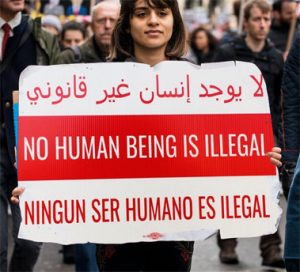
Our hearts go out for these 311 young men whose dreams were shattered for life because they are our people. They are citizens of our own country chasing a dream and crossing the line between legal and illegal to make it big in the world. We do not condemn them. We do not disown them. Our government negotiates with other governments for their deportation and safe passage. This is because we believe they have the right to be brave enough to take risks, to strive, to rise and become successful and a few broken rules is not earth shattering and can be forgiven and will be forgotten when they transition into the legal world again. Empathy is the core principle for this.
Are there are two sides to every Issue?
Empathy however is a strange word. It is not universal. It does not apply equally for all. Capitalism teaches us that even empathy has to be rooted in self-interest. In a race we cry for our child when she fails to win, but we rejoice in the defeat of other children who lose, when our child wins. We push our child every day to run a new race. A race to do well in school, a race to become doctors and engineers, a race to get good jobs, a race to seek better opportunities. Our system for education, for jobs is all about the ‘survival of the fittest’. We all strive to push our way forward to reach the finish line in the race we are in.
If we are software engineers we are ready to leave home and fly across to the US under precarious work conditions in the hope that one day we shall have a better life. In this process we replace those who held those jobs previously. We replace local workers. They lose out in this race – we think we are winners in this race. But the only entity who actually wins is our employer. The employer succeeds in replacing a local worker with more wages and benefits with an immigrant worker at lower wage and insignificant benefits. The local workers see the immigrants as a threat and that makes the immigrant feel more threatened. This makes the immigrant more dependent on their employer.
The story is no different in our own locality. The migrant domestic worker from Bengal replaces the local domestic worker with her willingness to work for less wages and no bonus. The local workers cannot tolerate migrant workers. The migrant worker gets a job and thinks she has won this race, the local worker has lost. But the only person who gains is the employer. The employer can now get household chores done at a lower wage cost. The local workers see the migrants as a threat, and not the employers.
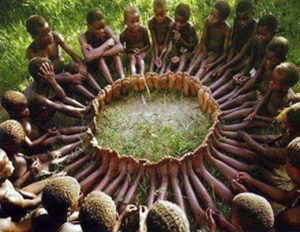 While we cry for our own, it is okay to leave people behind in the rat race and not care about their pain. There could be a different way to look at this. There could be a way beyond the ‘pursuit of self-interest’ that is rooted in empathy.
While we cry for our own, it is okay to leave people behind in the rat race and not care about their pain. There could be a different way to look at this. There could be a way beyond the ‘pursuit of self-interest’ that is rooted in empathy.
This is a true story. An anthropologist once proposed a game to a bunch of kids in a South African village. He put a basket full of fruit at the base of a tree and said, whoever reaches the tree first will win the basket. He blew the whistle. All the kids took each other’s hand and ran together. They reached the tree together. They won the race together. They then happily sat in a circle and enjoyed their treat. When asked why they ran in a group when they could have individually got much more. One child replied: “Ubuntu! How can one of us be happy when all the others are sad?” Ubuntu in Xhosa means “I am because We are”.


